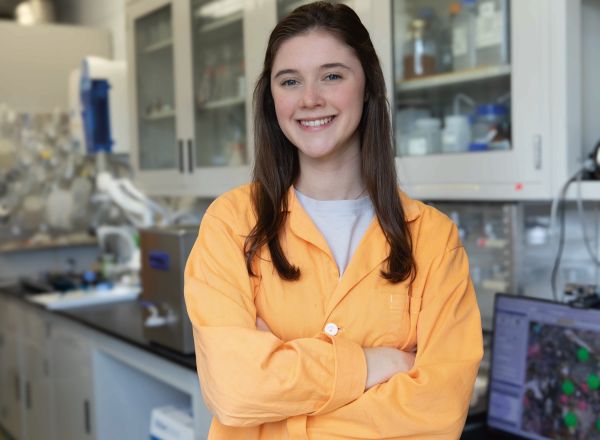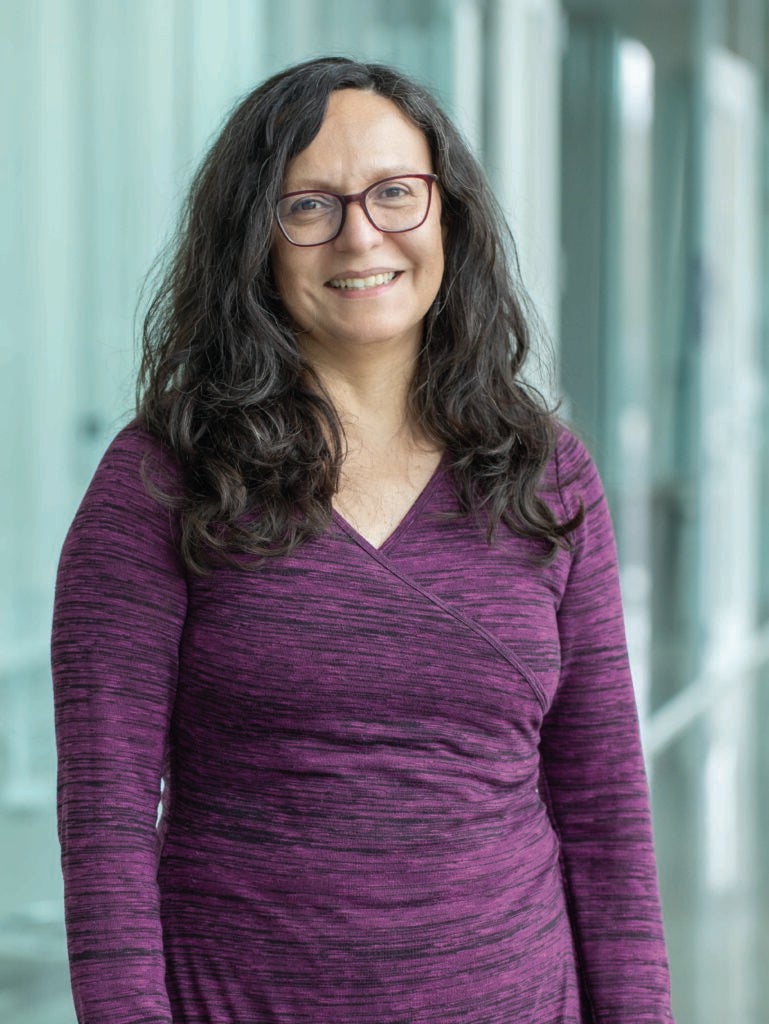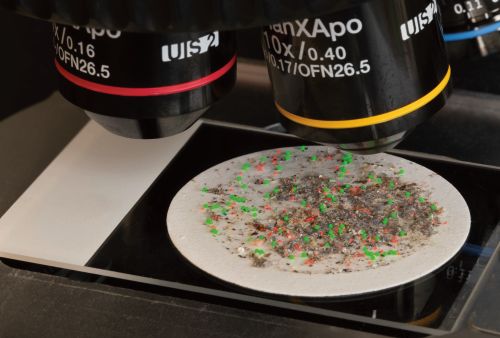Fitting a whale into a lab might sound impossible, but University of Rhode Island (URI) student Lindsey Reimels ’25 found a way to study a whale’s unique filtering system far from the ocean.
Instead of a massive whale, she built a model using acrylic and palm tree wood fiber to investigate how baleen plates in a humpback whale’s mouth filter out microplastics – no whale required.
Reimels, a marine biology major, knows that whales capture a large percentage of plastics in water flowing through their mouths.
Eager to discover the impacts of plastics on whales, Reimels received funding from the National Science Foundation (NSF) Research Experiences for Undergraduates (REU) program, specifically from the Established Program to Stimulate Competitive Research (EPSCoR) program that supports URI’s Summer Undergraduate Research Fellowship (SURF). This initiative offers students stipends and a chance to participate in real-world research.

Organizers welcome students during the summer to join the URI Plastics: Land to Sea research initiative to explore and develop methods to manage locally generated plastic waste, focusing on reducing its impact on coastal communities.
There’s no shortage of interest — more than 160 students from across the United States applied for the 10-week program that linked them with professors in engineering, oceanography, fisheries, pharmacy, textiles, and natural resources.
During the summer Rowan Bixler worked on developing an optical microscopy method to identify and characterize different types of microplastics in environmental samples. The method involves tracking interference patterns created from light scattered by microparticles, which could make analyzing microplastics in samples more efficient and accessible.
“This research project has provided invaluable experience with scientific experimental design, microscope operation, and data analysis,” Bixler said. “I am excited to contribute to sustainability efforts. I am interested in pursuing a career in sustainable energy engineering, particularly in the wind or nuclear field.”
Elle Desmarteau worked with URI Engineering Professor Irene Andreu to observe how glitter as a primary microplastic degrades under various stressors, such as mechanical forces and particle-particle collisions as well as UV aging.
“Already, I have gotten the opportunity to learn and independently operate many machines: an ultra-micro hardness tester, UV aging chamber, and Raman, FTIR, and XRF spectroscopes,” said DesMarteau. “One of my favorite parts of this internship has been working with a wide range of professors, graduate students, and other undergrads.
“URI is an incredibly collaborative research institution, where I’m able to pop over to the machine shop to get my pipette tips cut off one moment and get help from scholars at the AI Lab with image analysis techniques the next. I am extremely grateful for this amazing opportunity to learn more technical research skills, expand my network, and explore a whole new state with the support and resources of the URI Plastics Initiative REU program.”
After gaining overall experience in the waste industry Joalys Rivera Castro became fascinated with the recycling process and materials science. Joining engineering Professor Vinka Oyanedel-Craver’s lab allowed her to focus on innovating in that field while contributing to sustainability goals.
“I am able to do solution-based research on marine fishing gear waste, so that we may upcycle it into construction bricks.” Castro said. “This gave me the opportunity to put to practice my degree and lab skills in this context in real world applications.”
Castro shared the example of assessing product quality and the environmental challenges that could impact recycling facilities going forward. “In utilizing particulate sampler and sensors and being able to have hands on in the shredding, grinding, extrusion, and melting process of mechanical recycling I’m putting my research to practical use.”
Reimels said she benefited from the program’s stipend, which meant she didn’t have to find a minimum-wage summer job and instead focused on learning and building connections for her future.

Associate Dean of Research, College of Engineering
Professor, Civil and Environmental Engineering
“It’s an undergraduate opportunity to give students a glimpse of what is coming if you pursue research,” said Oyanedel-Craver, associate dean of research at the College of Engineering. “It will give you a chance to build your strengths.”
The program benefits students because it provides them with experience and a research avenue they may want to pursue as a professional career.
“The program not only helps you grow as a scientist but also as a citizen,” Reimels said. “You learn so many different skills beyond science.” The REU program runs through 2027, Oyanedel-Craver and her colleagues hope the students will leave the experience impressed with the University, decide to attend URI for graduate school and ultimately stay in Rhode Island, strengthening the state’s knowledge economy.

